Survivors recount India flood ordeal
- Published
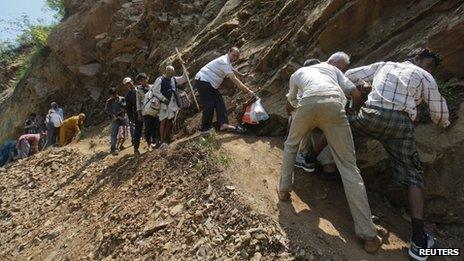
Tens of thousands of people are still stranded in the flood-hit northern Indian state of Uttarakhand, where nearly 150 people have died in the last few days. More than 15,000 people have been rescued. The BBC Hindi's Nitin Srivastava meets some of the survivors.
LAXMI, JABALPUR, MADHYA PRADESH
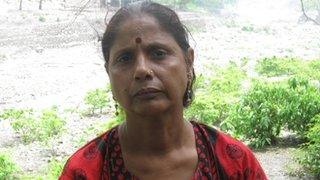
We began our pilgrimage on 6 June. We first visited Gangotri [source of the Ganges river] and Yamunotri [source of the Yamuna river] and then went on to the temple town of Kedarnath when tragedy struck. We finished our pilgrimage and as soon as we started our descent, it began to rain heavily.
We had to sit in the bus for 23 hours at a stretch. The weather was so bad that we couldn't even go out for our ablutions.
Several passengers were vomiting throughout and children were urinating in the bus. We could see landslides in front of us and no one dared step out.
It was so cold during the nights and we had nothing to eat. Whatever little was around got over soon. My husband's mobile phone had no connectivity and our family members feared we were dead.
Thank God we are alive.
RS SONI, KATNI, MADHYA PRADESH
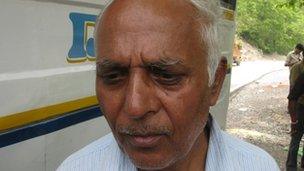
Although we are alive, we are mourning the death of one of our colleagues during this fateful trip.
I boarded a bus from Kedarnath and while we were coming down, there was a severe cloudburst.
One of my colleagues fell sick with high fever on the way and we got stuck before Rudraprayag for more than 36 hours. By the time we reached the government hospital two days later, he was dead.
We had to cremate him in Rudraprayag. The authorities over there didn't even have the time to issue a death certificate.
His wife is with us and she hasn't eaten since his death. I am afraid she too won't survive for long.
GEETA DEVI, BHILWARA, RAJASTHAN
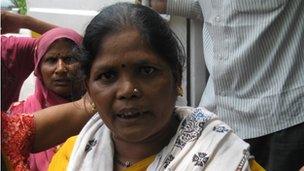
It has been the worst five days of my life.
I've never paid so much for drinking water, but when we were stranded, I purchased a glass of water for 180 rupees ($3; £1.95).
I have no money left now and have been borrowing from other passengers to pay for our food and water.
We had to abort our trip to the holy town of Badrinath because it is an area which is no longer accessible.
We've not been able to get seats in the train to return home to Rajasthan so we are staying in a rest room at the Haridwar railway station.
Earlier, I had never seen a man die in front of my eyes, but I saw a man dying over two days because of lack of medical attention.
Where is the government and what have the authorities done for the thousands of pilgrims who are stranded? I don't think anyone has received any help. I request you all to help us so that we can reach home safely.
PRAKASH KUMAR, INDORE, MADHYA PRADESH
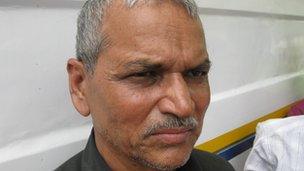
We were stuck in our bus on a damaged highway and we feared for our lives even after the bus started moving.
Half the roads are completely destroyed and you can only find boulders strewn all along the way.
In places where the waters have now receded, the roads are full of mud.
One of our fellow travellers died on the way just because of negligence. When we took him to a police checkpost on our way to Rudraprayag, there was no one to help us.
The villagers there told us that the police personnel had not been seen in the last two days.